Gregory Alan Isakov holds Artpark in reverent silence
Isakov holds Artpark in reverent silence
Review: The Colorado folk singer-songwriter captivated his audience with a spellbinding set that left many hushed and entranced.
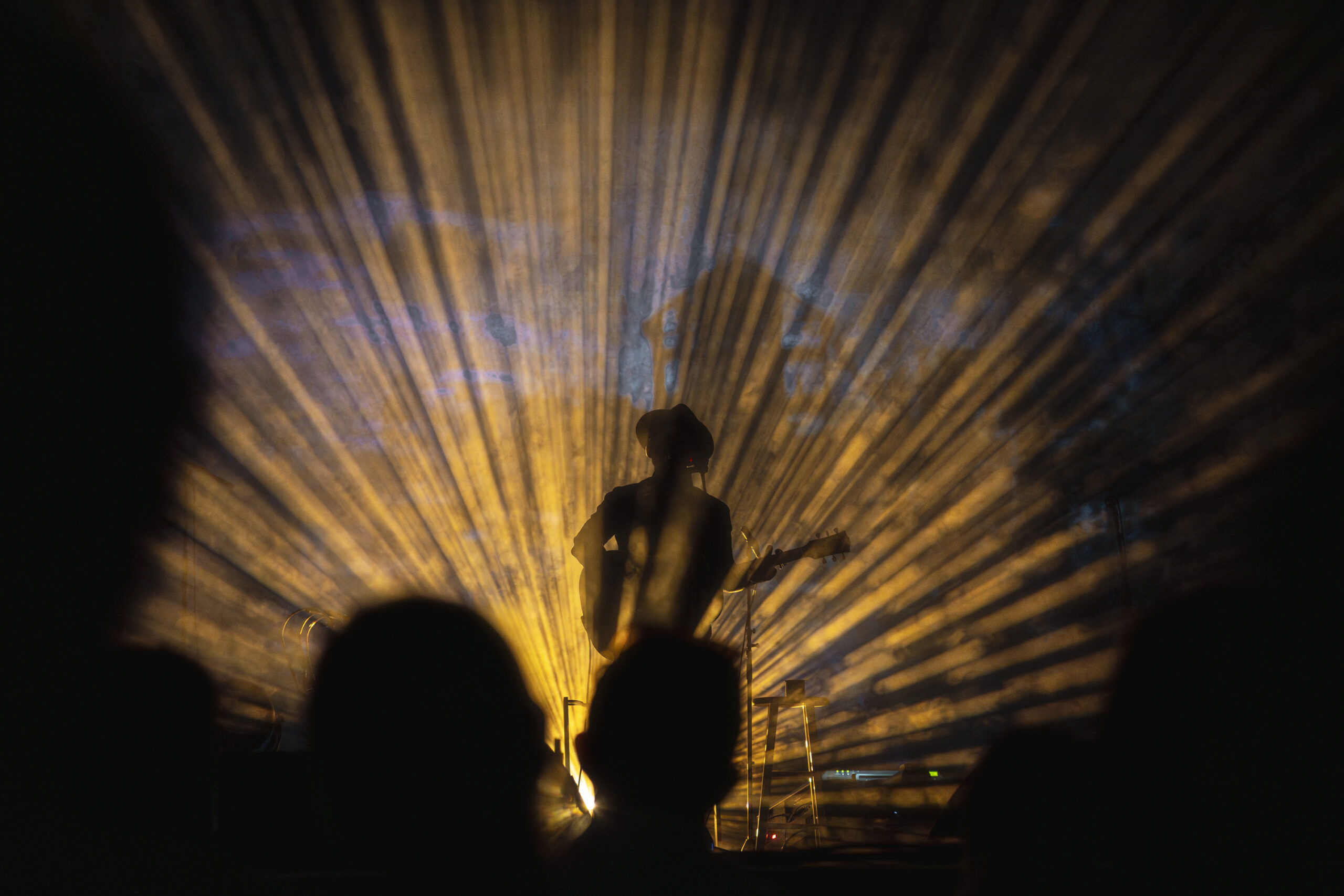
An evening with Gregory Alan Isakov is not a routine concert experience where fans show up to be entertained or sing along at the top of their lungs. It’s more of a communion, an intimate gathering where silence carries as much weight as sound.
People drifted into Artpark as the sun set over Lewiston, the room already holding the contemplative gravity Isakov is known for. The night opened with Canadian folk duo Ocie Elliott, whose harmonies played like a soft prelude for the show to come. Their understated set prepared the audience for music that didn’t demand attention, but invited it.
When Isakov walked onto the stage, there was no dramatic flourish. The band quietly settled into place, and the opening chords of “Miles to Go” hummed from the darkened stage, their figures silhouetted by a dim blue light through the haze of smoke machines. Without pause, Isakov slipped into “San Luis,” one of his most beloved songs.
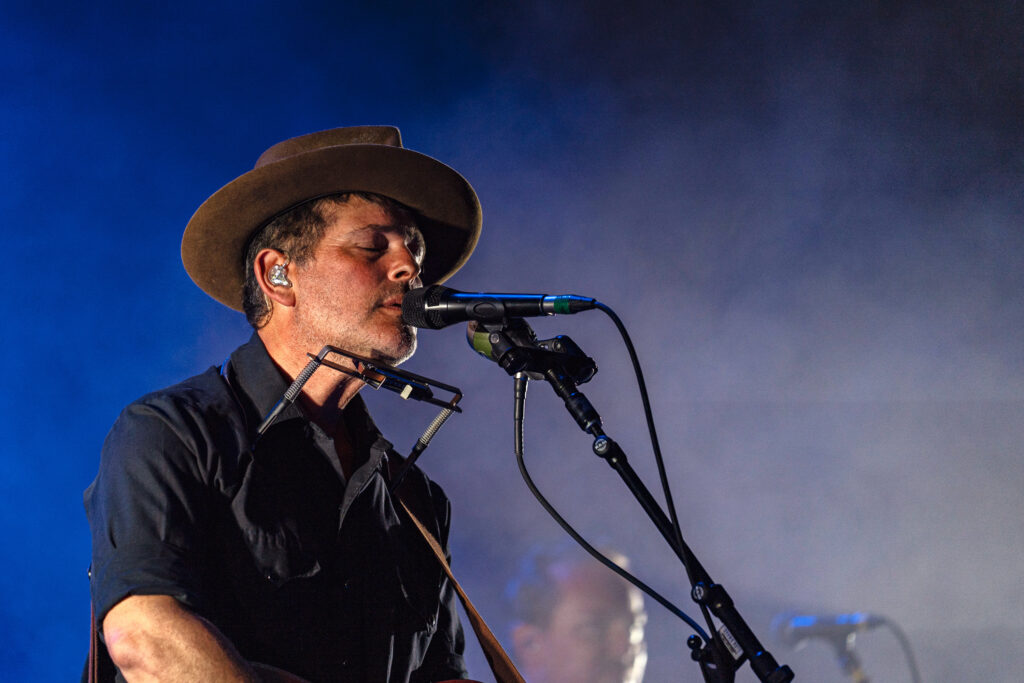
Born in Johannesburg, South Africa, and now rooted in Colorado, Isakov has always carried a sense of place in his music, his voice both gentle and commanding. By the time he reached “Amsterdam” and “Southern Star,” the band had found a cadence that felt like storytelling through sound. Songs like “The Fall” and “Light Year” shimmered in ways that seemed to suspend time.
Isakov is often praised for turning brief phrases into vivid imagery. The Associated Press has noted his ability to “convey both urgency and grandeur at the same time,” and No Depression wrote that he can turn a short poem into something that holds attention for hours. Both felt true on Sunday. In “This Empty Northern Hemisphere,” each word was etched with precision, carrying sorrow and beauty in equal measure. His band played with near-telepathic timing, always leaving space for silence and reflection.
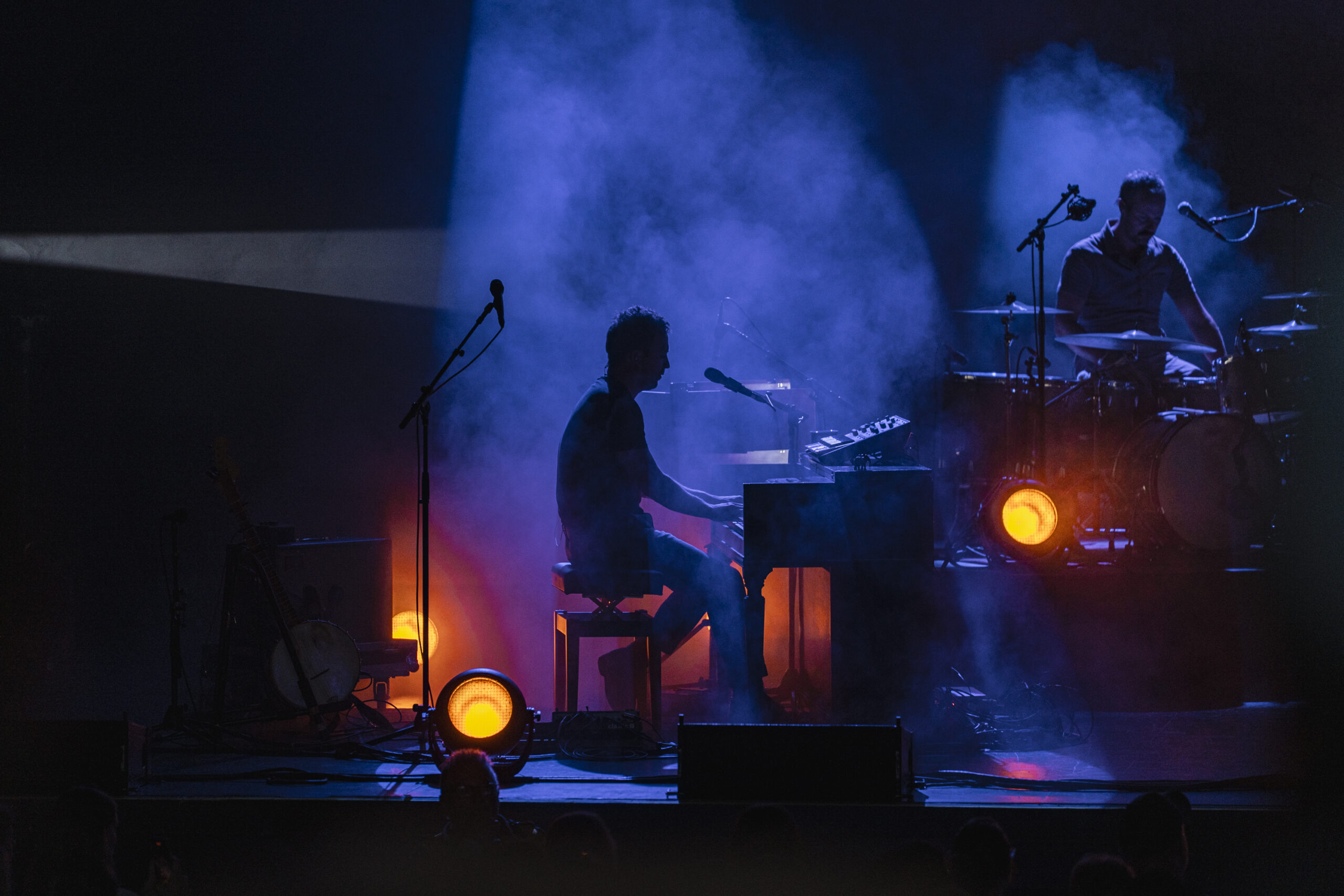
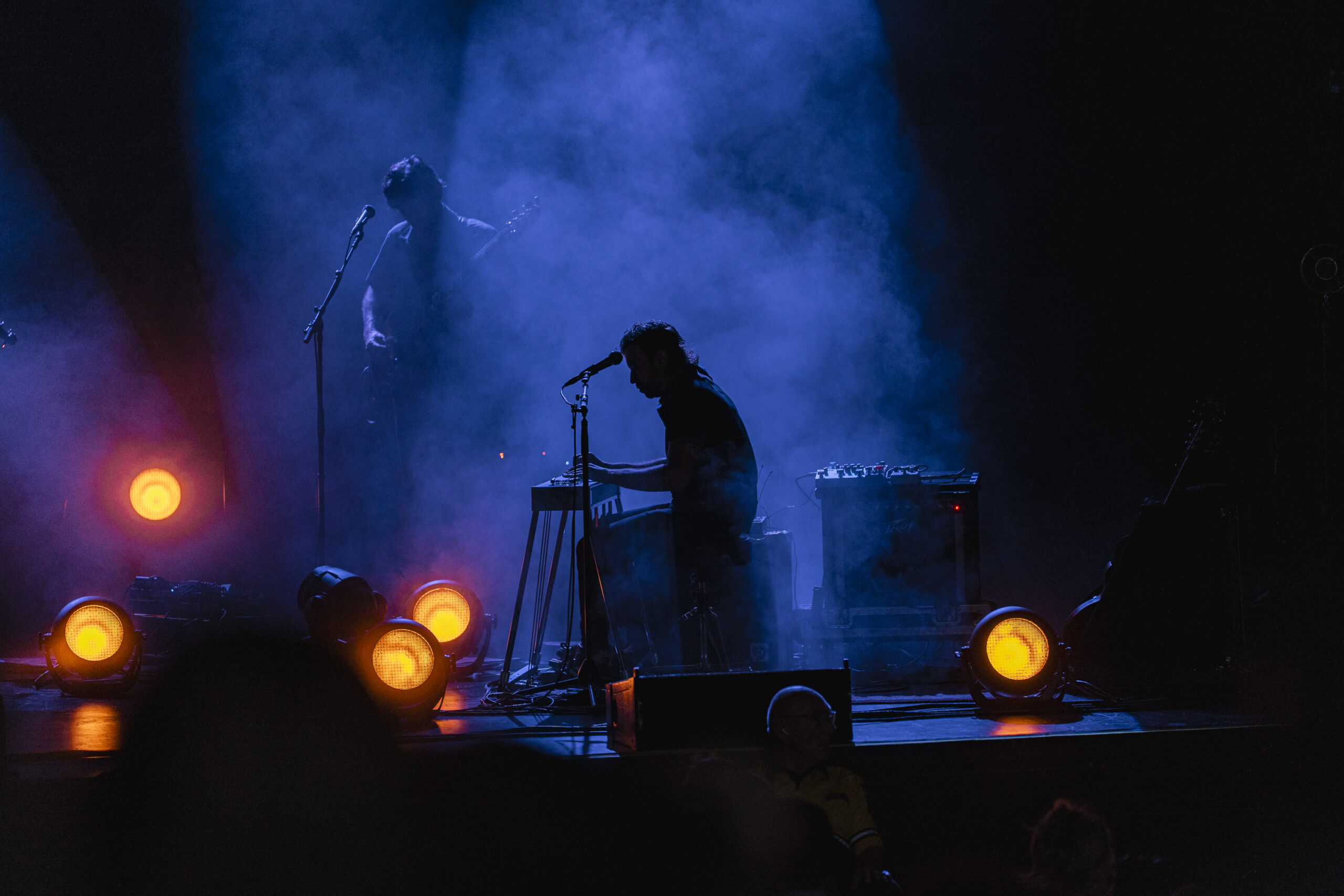
A highlight came when Ocie Elliott returned to the stage for “Second Chances.” The song, already one of Isakov’s most tender cuts, became substantially larger, as though the entire theater took one slow breath together. By the time the band reached “Berth,” “Chemicals” and “Caves,” the crowd had fully surrendered to the quiet current. Isakov noted the rare hush in the room, offering the promise of a few extra songs for the enamored crowd. No one checked their phones or shifted in their seats; it was a stillness uncommon at a concert, born of deep, collective attention.
The setlist spanned his six studio albums, from The Weatherman, to the Grammy-nominated Evening Machines, yet it never felt like a retrospective. The performance moved steadily, with songs from different eras flowing into one another. His discography is wide, but bound by a singular voice and vision.
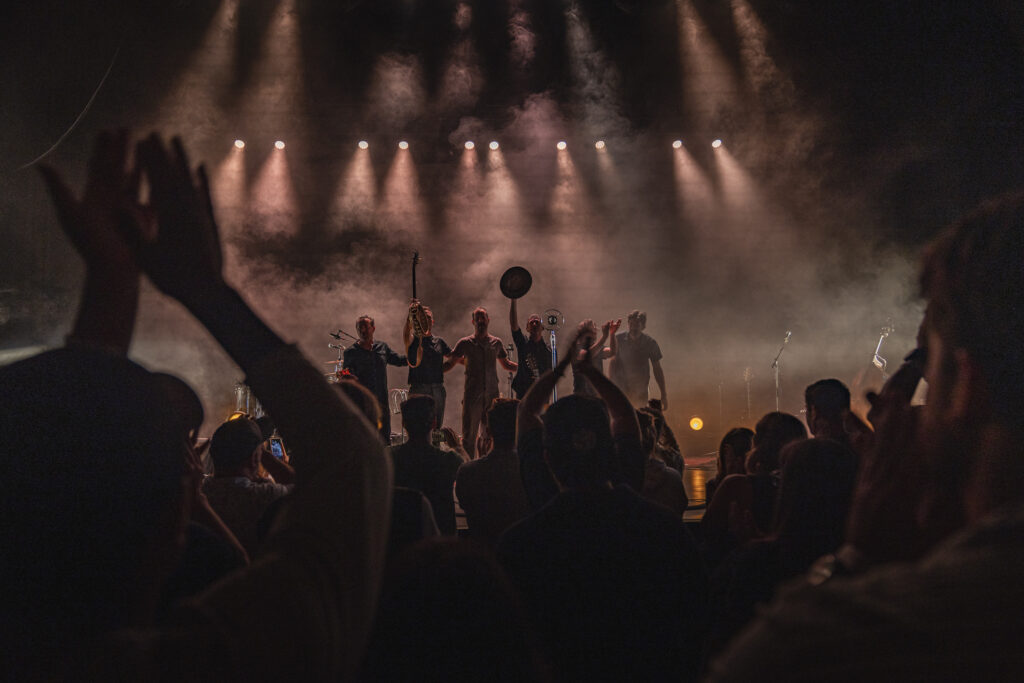
After a brief break, Isakov and the band returned with three songs that felt like a benediction. For the encore, the entire band gathered close around a single microphone at center stage, their voices and instruments folding into one another in a beautiful, unvarnished moment. “Big Black Car” opened with heavy longing, followed by “Silver Bell,” which glowed like a lantern in the dark. And finally came “The Stable Song,” perhaps his most enduring work. If the night had been a storm, this was the calm after, fragile yet resolute. The audience swayed on their feet, some closed their eyes, and when the last note dissolved, there was a breathless pause before applause, as if everyone needed a moment to return to themselves. The band exited to a standing ovation, the applause carrying them forward to their next stop on tour.
Part of Isakov’s mystique lies in the life he leads offstage. When not touring internationally or performing with symphonies, he runs Starling Farm in Boulder County, Colorado, which supplies organic produce to restaurants and food banks. This connection to the earth carries into his music, where the patience of tending soil mirrors the languid act of crafting songs. At Artpark, that ethos seemed to linger with every note.
Isakov does not just play songs, he cultivates moments. At Artpark, he offered more than a concert. He offered stillness, proof that the most powerful experiences are not always the loudest. They are the ones that whisper quietly, leave space for silence and remind us that beauty often lives in the pause between notes.
